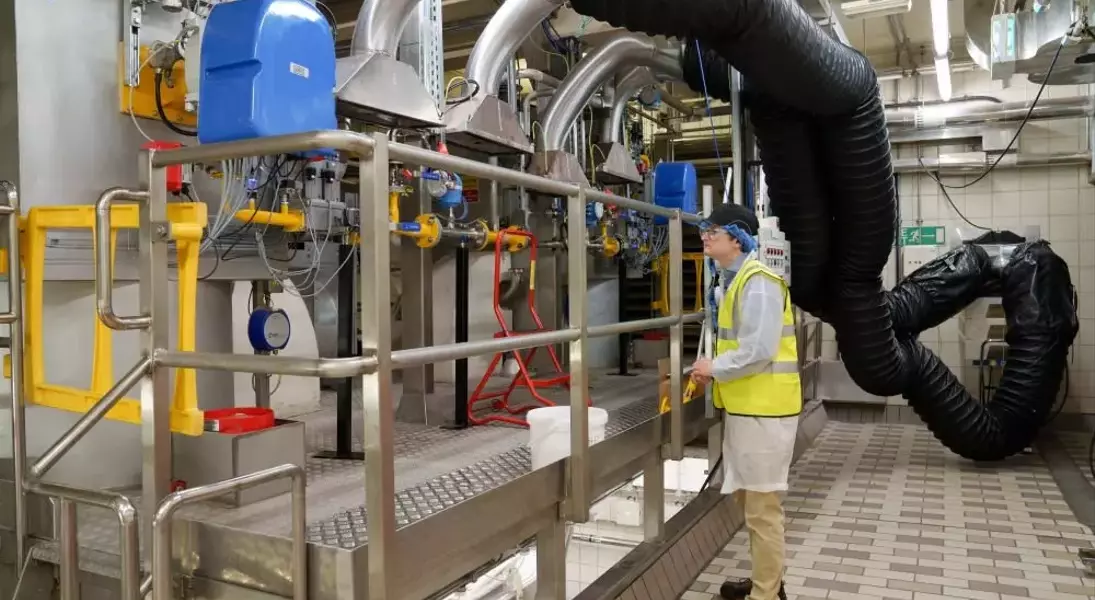
In a significant stride towards sustainable manufacturing, Kellogg’s has successfully completed a government-backed hydrogen production demonstration at one of its British facilities. This marks the first instance in the United Kingdom where cereal products have been manufactured using hydrogen as an energy source. The trial was part of the HyNet Industrial Fuel Switching programme and involved substituting traditional fuel gas with hydrogen to power the toasting ovens. The demonstration not only produced popular cereal brands but also highlighted the potential of hydrogen in reducing carbon emissions within the food industry.
A Breakthrough in Sustainable Food Manufacturing
In the heart of the UK, during a pivotal three-week period, a major breakthrough occurred at a prominent food processing plant. Kellanova UK, the manufacturing arm of Kellogg’s, took part in a pioneering initiative funded by the Department for Energy Security & Net Zero. This funding allowed the company to explore innovative methods of reducing greenhouse gas emissions. By replacing conventional fuel gas with hydrogen, the factory managed to produce well-known cereals such as Corn Flakes, Bran Flakes, Special K, and Rice Krispies without compromising on quality or efficiency.
The demonstration, which was part of the HyNet Industrial Fuel Switching 2 programme, showcased the viability of hydrogen as a clean energy source in industrial settings. It provided valuable insights into how industries can transition to low-carbon fuels while maintaining operational excellence. Employees at the facility were also given opportunities to learn about the new technology, enhancing their skills and preparing them for future advancements in sustainable practices.
Kellanova’s commitment to sustainability is reflected in its ambitious targets. By the end of 2024, the company aims to achieve a 54% reduction in scope 1 and 2 greenhouse gas emissions across Europe. Looking ahead to 2030, it has set an even more challenging goal of reducing these emissions by 63%. This demonstration serves as a testament to the company’s dedication to creating a greener future through continuous innovation and collaboration.
Sam Bistiaux, Vice President of Manufacturing at Kellanova, expressed enthusiasm about this milestone: “This achievement represents a significant step forward for our operations and the broader industry. We are excited to be at the forefront of this transformative process, sharing our experiences to inspire others to embrace sustainable practices.”
David Parkin, Chair of the HyNet Alliance, echoed similar sentiments: “The success of this demonstration underscores the importance of investing in hydrogen technology. It paves the way for other businesses to explore low-carbon alternatives and contribute to the UK’s journey towards achieving net-zero carbon emissions.”
This initiative not only benefits the environment but also sets a powerful example for other companies to follow. By embracing hydrogen technology, manufacturers can significantly reduce their carbon footprint while fostering a culture of innovation and sustainability.
Reflections on the Future of Green Manufacturing
From a journalist’s perspective, this demonstration is more than just a technological achievement; it symbolizes a shift towards a more sustainable industrial landscape. As industries worldwide face increasing pressure to reduce their environmental impact, initiatives like this offer a beacon of hope. The successful use of hydrogen in cereal production demonstrates that with the right investments and partnerships, it is possible to create greener manufacturing processes without sacrificing productivity or quality.
Moreover, the willingness of companies like Kellanova to share their knowledge and best practices is crucial for accelerating the adoption of low-carbon technologies. This collaborative approach will empower other businesses to embark on their own journeys toward sustainability, ultimately contributing to a collective effort to combat climate change. The future of green manufacturing looks brighter, thanks to pioneers who are willing to lead the way.
